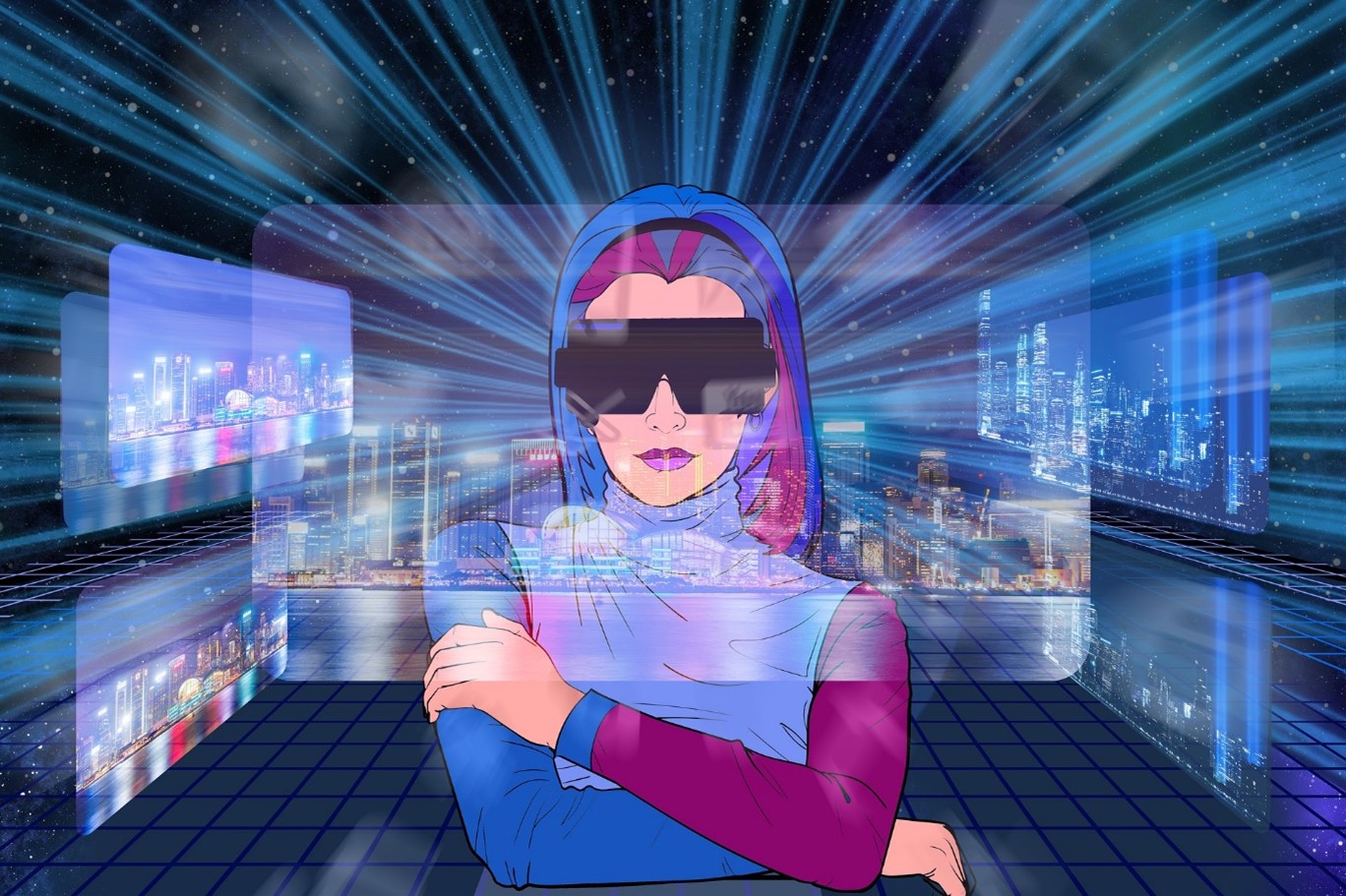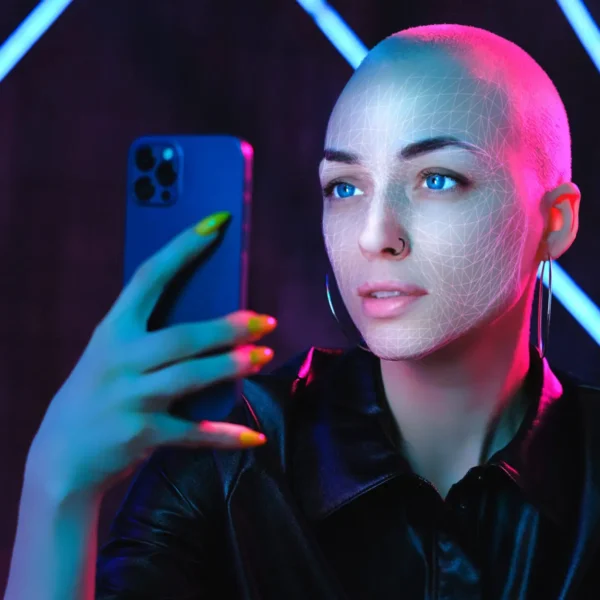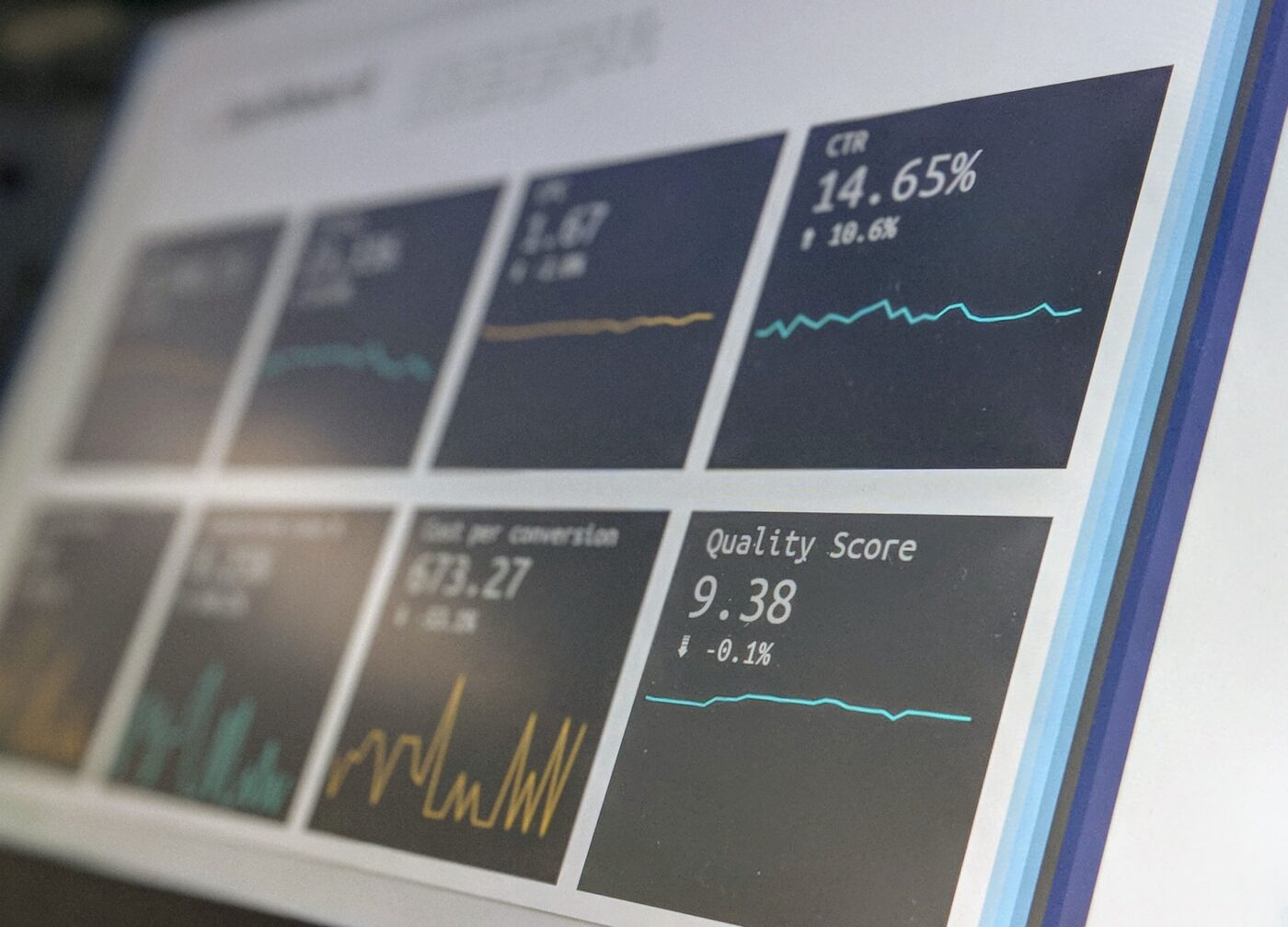Metaverse – Diving into a new world?

What Web 3.0 has in store for future marketing
In the last few months, the term metaverse has appeared again and again, especially in connection with Mark Zuckerberg, who announced that Facebook should no longer be a social media company in the future, but a metaverse company. But what exactly does the metaverse imply and what potential does it offer for the marketing industry?
Metaverse is for everyone & always on
Even though Facebook has been calling itself Meta since December 2021, the metaverse is not something Facebook can claim for itself. The metaverse functions in a decentralized manner – anyone can network with anyone in this virtual world and move around in it.
It can be seen as an evolution of today’s Internet – because we can not only view it, but also immerse ourselves in it. It includes immersive environments that often use virtual or augmented reality technology and, as such, exists in real time.
It not only includes the virtual as well as physical world, but is also powered by a fully functional virtual economy. This is built on cryptocurrency, for example, as well as digital goods and assets.
Fascination for consumers & marketers
Among consumers, the fascination around the metaverse is already present; the keyword “metaverse” already delivers more than 677,000 results on Google. Search queries have risen sharply since October 2021. No wonder when we realize what we can experience in the metaverse. For marketers in particular, the metaverse is a great opportunity, as consumers can be addressed in a completely new way and, at the same time, internal capabilities can be pushed in new directions.

Part of the reason for the strong interest in the metaverse is the broad range of use cases. While the metaverse has been used in gaming for some time, use cases are now expanding into new immersive retail, entertainment, sports and educational experiences.
3D experiences in marketing
In marketing terms, the metaverse can be seen as an extension of the omnichannel, because where virtual and real worlds merge, places can be formed for new communities or events can be hosted – and all around the globe. The first concerts, for example, have already taken place in the Metaverse, such as by Ariana Grande and Travis Scott – with millions of spectators. The concert was hosted by gaming giant Fortnite. With the help of motion capture – a tracking process for recording movements – the artists’ movements were transmitted to the stage in real time.

And the technology group Sony, together with the Manchester City soccer club, is also planning to digitally recreate the Manchester stadium. In the future, fans will be able to watch matches live without leaving home. To make the experience as authentic as possible, Hawk Eye technology, VR glasses and different viewing angles will be used.
Potential and Risks
For companies and brands in particular, this offers the opportunity to create and host organic spaces in which their own community can exist. Brands can also open their own store in a world, community or platform and offer their followers the opportunity to test and buy their products whenever and wherever they want. Because anyone who moves in the metaverse needs their own avatar. This avatar can be individually dressed and equipped and wants to own certain things – just like in the real world. It may seem unusual, but virtual things have just as much real value there as possessions in reality. This is because those who buy virtual goods often use them to purchase so-called “non-fungible tokens,” or NFTs. These are computer files whose authenticity is verified via a blockchain. This means that such goods have a “real” value, unlike goods that have always been available for avatars to buy in online games.

On Fortnite, for example, there are numerous brands that offer virtual products with which users can dress their avatars. And: According to a recent study, around 70 percent of customers who visit a virtual store also make purchases there. But even away from games: The metaverse offers the opportunity to talk to a real salesperson, try on clothes and, in the future, feel them haptically.
In addition to the hype about the metaverse, there is also another hype, and this one turns its back on the digital world: “Digital Detox. How can these two hypes be reconciled? It remains to be seen whether the hype about the metaverse will continue, since there were already predecessors such as the life simulation “Second Life” that pursued a similar idea but quickly fell into oblivion.
Conclusion
Many elements of the metaverse have been around for some time – others are still dreams of the future. However, the strong interest in the metaverse through investments in the billions by tech giants such as Microsoft and Sony are contributing to a rapid optimization and development of the metaverse, so that in the future there will be many opportunities for companies and thus also for the marketing industry – provided that the hype develops into a trend. However, one marketing tool from the metaverse already seems to have established itself in the marketing industry: virtual influencers!
Find out more about this and what significance virtual influencers can have for companies in our next blog post!



